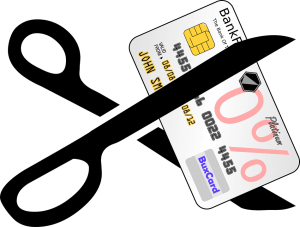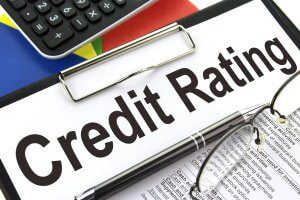How Much Debt is Too Much?
Reviewed by:

Use these 3 easy measures to see if you have too much debt.
[On-screen text] How do you know if you have too much debt?
You can do the math and find out if your debt is balanced with your income and see if it’s dragging down your credit score.
Or you can also look for warning signs, like borrowing money to pay bills or maxing out your credit cards.
You can talk to a trained credit counsellor to know for sure.
We can help you find solutions.
Give us a call for a free evaluation
Call today for a Free Evaluation: 888-834-3708
Credit gives you the ability to achieve major life milestones, like buying a car and a home. But the debt that it causes can lead to financial challenges, especially when you get overextended.
Revolving debts, such as credit cards, can be particularly problematic because you have an open credit line that you can borrow against, as needed. That can be beneficial in a pinch when you have an unexpected expense or emergency. But it can also lead to problems with your budget that leave you living paycheque-to-paycheque.
So, how do you tell when you have too much debt? These three easy measures can help you decide.
Debt-to-income ratio
This first measure can tell you when you have too much debt overall. A debt-to-income ratio (DTI) measures the amount of debt you have relative to your income. You divide your total monthly debt payments by your gross monthly income and multiply by 100 to get a percentage.
This is the same ratio that lenders use to see if you’re overextended when you apply for a new loan. They will see what your DTI is with the new loan payments factored in. If the resulting percentage is too high, you won’t get approved – even if you have an excellent credit score!
Most lenders will reject a loan application if their DTI is higher than 41-45% with the new loan payments included. This means you generally want to keep your DTI below 36%. That way, you can borrow as needed, if you need new financing.
You should check your debt-to-income ratio regularly to make sure you keep your ratio below 36%. Just because you got approved for the last loan you applied for, it doesn’t mean your ratio is good. Credit card debt can get you overextended if you run up balances on multiple cards. The next two ratios can help you ensure you keep those debts under control.
Credit utilization ratio
This next ratio is one of the main factors used to calculate your credit score. It accounts for 30% of the “weight” in how your score is calculated by the credit bureaus. A credit utilization ratio measures how much of your total available credit limit you currently use.
To find this ratio, you total up all of the current balances on any revolving credit lines you currently hold. Then you divide that by the total credit limit of all your credit cards and credit lines.
Any utilization ratio above 30% can be bad for your credit score and less is always better. In fact, paying off revolving credit lines in full every month is the best thing you can do for your score. This will keep your net utilization ratio at 0%. However, if you see that you’re damaging your score because your utilization is too high, it means you need to find debt relief.
| Total credit limit | Maximum debt that won’t damage your score |
|---|---|
| $1,000 | $300 |
| $2,000 | $600 |
| $3,000 | $900 |
| $5,000 | $1,500 |
| $10,000 | $3,000 |
| $15,000 | $5,000 |
| $20,000 | $6,000 |
| $25,000 | $7,500 |
Of course, just because you have a high enough limit to avoid credit score damage, it doesn’t mean that you can afford your debt. That’s where the last ratio comes in.
Credit card debt ratio
This final ratio helps you see if your balances are getting too high for your budget. A credit card debt ratio measures how much of your income you’re using to cover your minimum payment requirements. You divide your total minimum payment requirements by your total monthly income and then multiply by 100 to get a percentage.
Minimum payments should never take up more than 10% of the income you take home. Any higher than that and it can start to eat away at your budget and leave you living paycheque-to-paycheque.
This is not to say that you can’t spend more of your income to pay off debt if you’re carrying multiple balances. For example, if you’re using a debt reduction strategy to become debt-free, you dedicate as much cash flow as you can comfortably afford to eliminate your balances as quickly as possible.
However, this is different from letting your minimum payment requirements exceed 10% of your income. When this happens, you end up with less and less cash flow, which often means you can get out of debt using traditional payments.
If you have too much credit card debt, talk to a trained credit counsellor to review your options.





